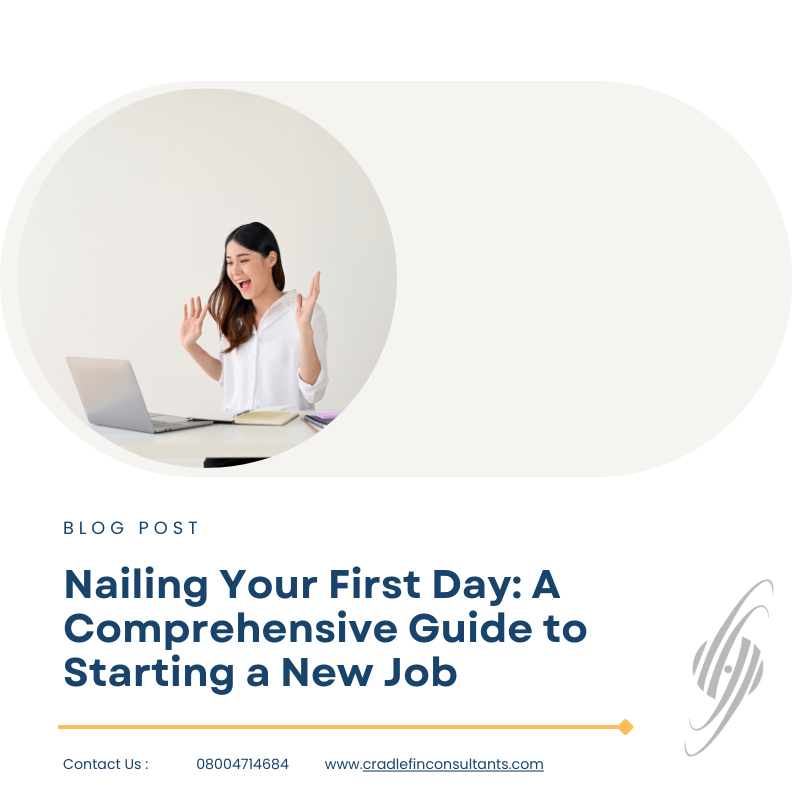Evaluating a job offer is a crucial step in the career decision-making process, as it not only determines our immediate work circumstances but also sets the tone for our long-term professional journey. Understanding the various components of a job offer, from salary and benefits to company culture and growth opportunities, can empower individuals to make informed decisions that align with their career aspirations and personal values. In this article, we will delve into the importance of evaluating a job offer and explore key considerations that can help individuals navigate this significant milestone with confidence and clarity.
1. Understanding the Components of a Job Offer
1.1 Job Title and Description: First off, you need to know what you’re getting into. The job title and description should be crystal clear so you don’t end up as the office “mystery person.”
1.2 Salary and Compensation Package: Money, money, money! Understanding the salary and compensation package ensures you’re not accidentally signing up for a diet of ramen noodles every night.
1.3 Benefits and Perks: Health insurance, retirement plans, gym memberships – oh my! Don’t forget to cheque out the benefits and perks that come with the job. Who doesn’t love a good discount on their favourite yoga studio?
2. Assessing Salary and Benefits Package
2.1 Comparing Market Rates: Don’t be in the dark! Compare the salary offered with market rates to make sure you’re not being lowballed. You’re not just another bargain find at a flea market.
2.2 Understanding Bonus Structures: Bonuses can make it rain – or not. Make sure you understand how bonuses work so you’re not left waiting for that yacht money that may never come.
2.3 Evaluating Health and Wellness Benefits: A healthy employee is a happy employee. Cheque out the health and wellness benefits to make sure you’re covered when the office cold inevitably makes its rounds.
3. Evaluating Company Culture and Values
3.1 Researching Company Mission and Values: Are you a corporate warrior or a free spirit? Research the company’s mission and values to see if you’re a cultural fit. Nobody wants to be the lone wolf at a company full of sheep.
3.2 Assessing Workplace Environment: Cubicles or open space? Ping pong tables or water cooler chats? Assess the workplace environment to see if you’ll thrive in the office jungle or feel like a fish out of water.
3.3 Investigating Diversity and Inclusion Practises: Variety is the spice of life! Investigate the company’s diversity and inclusion practises to ensure you’re entering a welcoming and inclusive work environment. No one wants to be stuck in a company that’s stuck in the past.
4. Considering Career Growth Opportunities
4.1 Reviewing Promotion Paths: Is there a ladder to climb, or are you stuck on the ground floor forever? Review the promotion paths to see if there’s room for growth and advancement. You don’t want to be stuck in the intern zone for eternity.
4.2 Training and Development Programmes: Sharpen those skills! Cheque out the training and development programmes to see if you’ll have opportunities to level up your abilities and become the office wizard you were meant to be.
4.3 Mentoring and Coaching Opportunities: Guidance is key! Mentoring and coaching can be invaluable for your professional growth. Make sure the company offers opportunities for you to learn from the masters and avoid becoming a workplace lost puppy.Now you’re armed with the knowledge to evaluate that job offer like a pro! Remember, it’s not just about the paycheck – it’s about finding a job that fits you like that perfect pair of jeans.
5. Weighing Work-Life Balance Factors
Ah, the eternal quest for that elusive work-life balance. It’s like trying to find the perfect ratio of coffee to cream in your morning brew – tricky but oh so necessary. Here’s how to do it without losing your mind:
5.1 Assessing Flexible Work Arrangements: Flexibility is key, my friends. Whether you’re a night owl or an early bird, knowing if a job lets you spread your wings (metaphorically, of course) is crucial. Will they let you work from your favourite coffee shop occasionally? Can you adjust your hours to fit in that hot yoga class? These are the burning questions to ask.
5.2 Evaluating Paid Time Off Policies: Ah, sweet vacation days, how we cherish thee. Make sure you know what you’re getting into in terms of time off. Are you going to have to jump through hoops to take a day off? Is there a generous PTO policy that’ll let you jet off to Bali at a moment’s notice? It’s all about finding that perfect balance.
5.3 Understanding Workload Expectations: Ah, the workload – the Everest of work-life balance. It’s like trying to juggle a dozen flaming torches while riding a unicycle. Make sure you know what you’re signing up for. Will you be drowning in tasks with no end in sight, or will you have time to actually enjoy life outside of work? Choose wisely, my friends.
6. Negotiating Terms and Conditions
Ah, negotiation – the art of getting what you want without making enemies. It’s like haggling at a flea market but with higher stakes. Here’s how to navigate those murky waters like a pro.
6.1 Identifying Key Negotiables: What are the things that make your heart go pitter-patter in a job offer? Is it the salary, remote work options, or maybe a pet-friendly office? Identify your must-haves and nice-to-haves before diving into negotiations. You’ll thank yourself later.
6.2 Setting Clear Priorities: In the world of negotiation, clarity is key. Know what you want, what you’re willing to compromise on, and what is absolutely non-negotiable. It’s like making a grocery list – don’t stray too far or you’ll end up with a cart full of regrets.
6.3 Seeking Win-Win Solutions: Ah, the elusive win-win. It’s like finding a unicorn in a sea of donkeys. Remember, negotiation isn’t about crushing your opponent; it’s about finding a solution that works for everyone involved. Keep an open mind, listen actively, and who knows, you might just end up with a deal that leaves everyone smiling.
7. Seeking Feedback and Guidance
Ah, seeking guidance – it’s like asking for directions when you’re lost in a corn maze. Don’t be afraid to reach out for help when evaluating a job offer. Here’s how to get the inside scoop:
7.1 Consulting with Career Advisors: Career advisors are like the Yodas of the professional world – wise, experienced, and ready to drop some serious knowledge. Whether it’s your college career centre or a trusted mentor, don’t hesitate to seek their guidance. They’ve been around the block a few times and can offer valuable insights.
7.2 Seeking Input from Trusted Colleagues Your colleagues – the unsung heroes of your professional journey. They’ve seen you at your best and worst, and their input can be invaluable when evaluating a job offer. Grab a coffee with a trusted coworker and pick their brain. They might just offer a perspective you hadn’t considered.
7.3 Using Online Resources for Comparison: Ah, the wonders of the internet – where everything from cat videos to job offer comparisons is just a click away. Take advantage of online resources like salary comparison sites, company reviews, and industry forums to get a sense of what’s out there. Knowledge is power, my friends.
8. Making Informed Decisions for Long-Term Success
Making decisions – it’s like trying to choose between cake and ice cream. When evaluating a job offer, think beyond the immediate perks and consider the long-term implications. Here’s how to set yourself up for success:
8.1 Balancing Short-Term Gains with Long-Term Goals: It’s like trying to resist the temptation of hitting snooze on a Monday morning – sometimes you need to think long-term. Consider how this job offer aligns with your career goals, where you see yourself in five years, and how this opportunity fits into the bigger picture. It’s all about playing the long game.
8.2 Considering Overall Job Satisfaction: Job satisfaction – the holy grail of professional fulfilment. It’s like finding a job that doesn’t feel like work. When evaluating a job offer, consider how it aligns with your values, passions, and overall happiness. A fat paycheck is great, but if you’re miserable every day, is it really worth it.
8.3 Reflecting on Personal Values and Priorities Ah, personal values – the North Star of decision-making. Take a moment to reflect on what truly matters to you. Is it work-life balance, career growth, or making a positive impact in the world? Understanding your values and priorities can help guide you towards a decision that aligns with your authentic self. In conclusion, by carefully assessing and evaluating a job offer, individuals can ensure that their next career move aligns with their goals and values. Making informed decisions based on factors such as salary, benefits, company culture, and growth opportunities can lead to long-term satisfaction and success in the professional realm. Remember, each job offer presents a unique opportunity for personal and professional growth, so take the time to weigh your options thoughtfully and confidently move forward in your career journey.
FAQ:
1. How important is it to negotiate a job offer?
Negotiating a job offer is crucial as it not only helps in securing the best possible compensation package but also sets the tone for your professional relationship with the employer. By negotiating, you demonstrate your value, assertiveness, and commitment to obtaining a fair deal that aligns with your skills and experience. It also allows you to clarify expectations, ensuring that both parties are on the same page regarding responsibilities, benefits, and career growth opportunities.
2. What role does company culture play in determining whether to accept a job offer?
Company culture plays a significant role in determining whether to accept a job offer as it directly impacts your job satisfaction and overall well-being in the workplace. A positive company culture promotes collaboration, innovation, and employee engagement, leading to higher job fulfilment and performance. On the other hand, a toxic or misaligned culture can lead to stress, burnout, and dissatisfaction. It is essential to assess the company’s values, work environment, team dynamics, and leadership style to ensure a good cultural fit before accepting an offer.
3. Should I prioritise salary over other factors when evaluating a job offer?
While salary is an important factor when evaluating a job offer, it should not be the sole determinant. It is crucial to consider other factors such as career growth opportunities, work-life balance, job responsibilities, company culture, benefits, and overall job satisfaction. Prioritising salary over these other factors may lead to sacrificing long-term career development, job happiness, and work-life balance. A balanced approach that considers both financial and non-financial aspects is recommended for making a well-informed decision.
4. How can seeking feedback and guidance from others help in the decision-making process regarding a job offer?
Seeking feedback and guidance from others can be invaluable in the decision-making process regarding a job offer. Consulting with mentors, career advisors, trusted colleagues, and friends can provide valuable insights, perspectives, and advice that you may not have considered on your own. Feedback from others can help you gain clarity, identify blind spots, evaluate the pros and cons of the offer, and make a more informed decision. It is essential to rely on a diverse network of individuals who can offer different viewpoints to ensure a comprehensive assessment of the job offer and its potential impact on your career. Remember to consider the credibility and relevance of the feedback received before incorporating it into your decision-making process.






